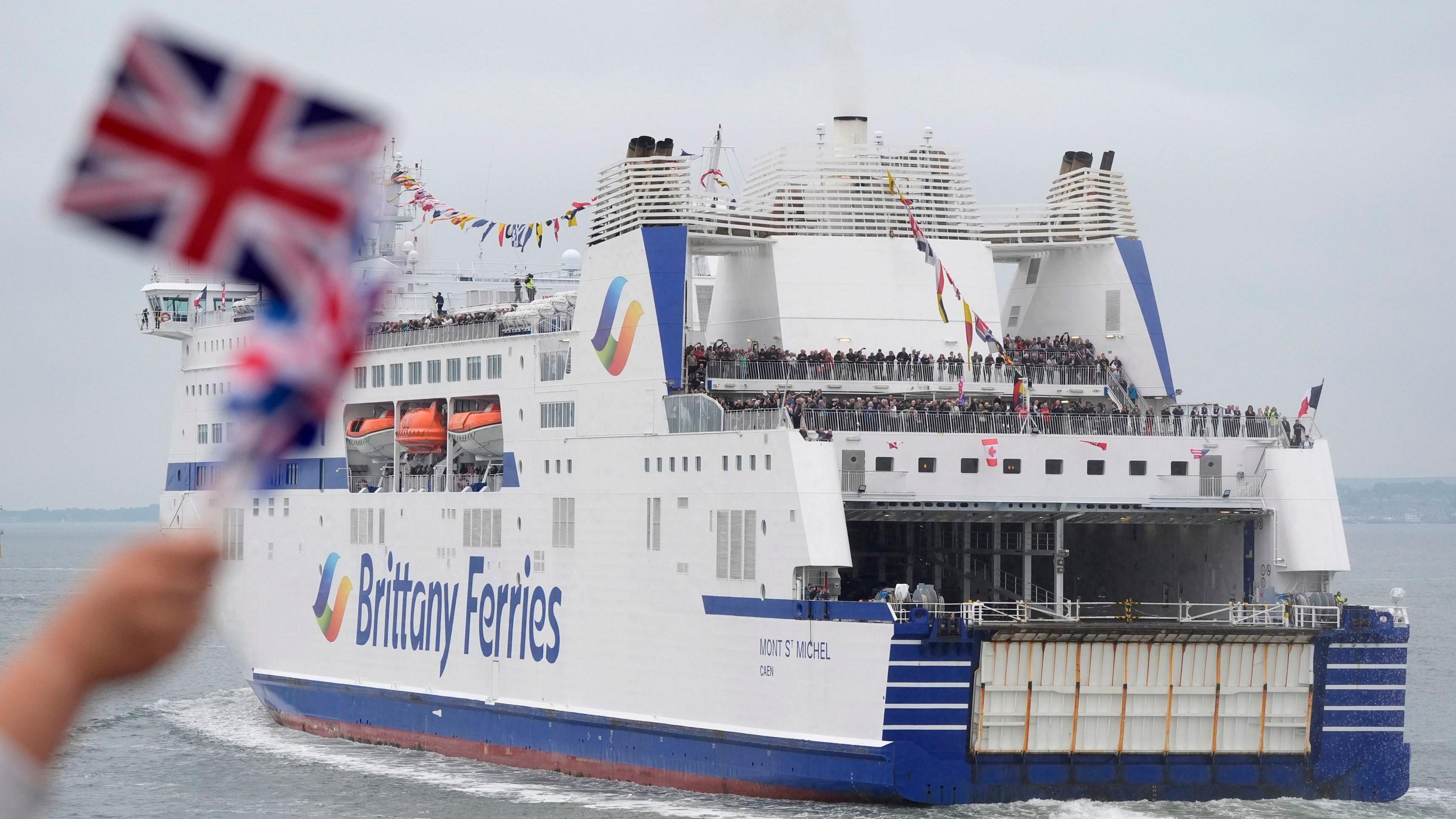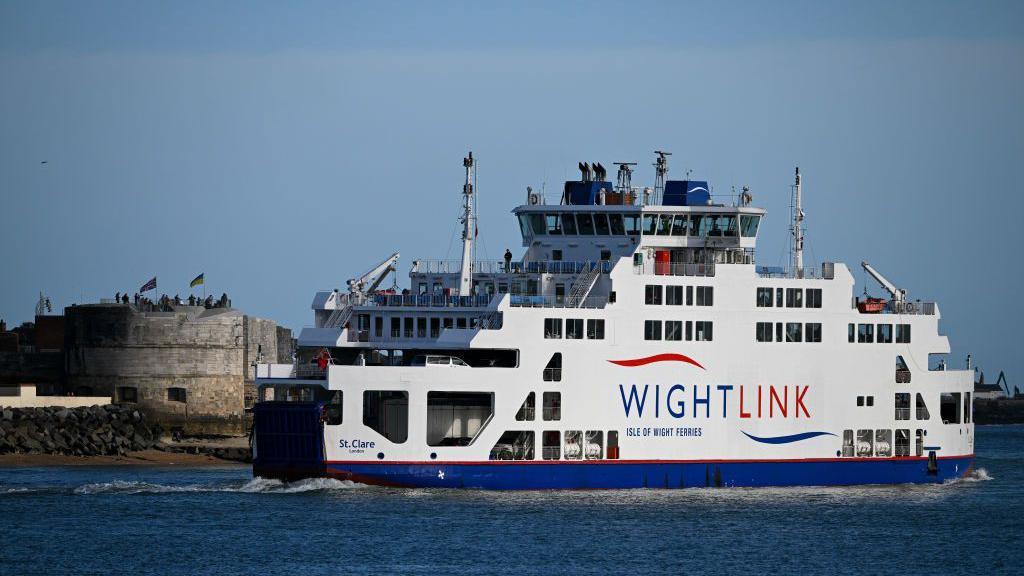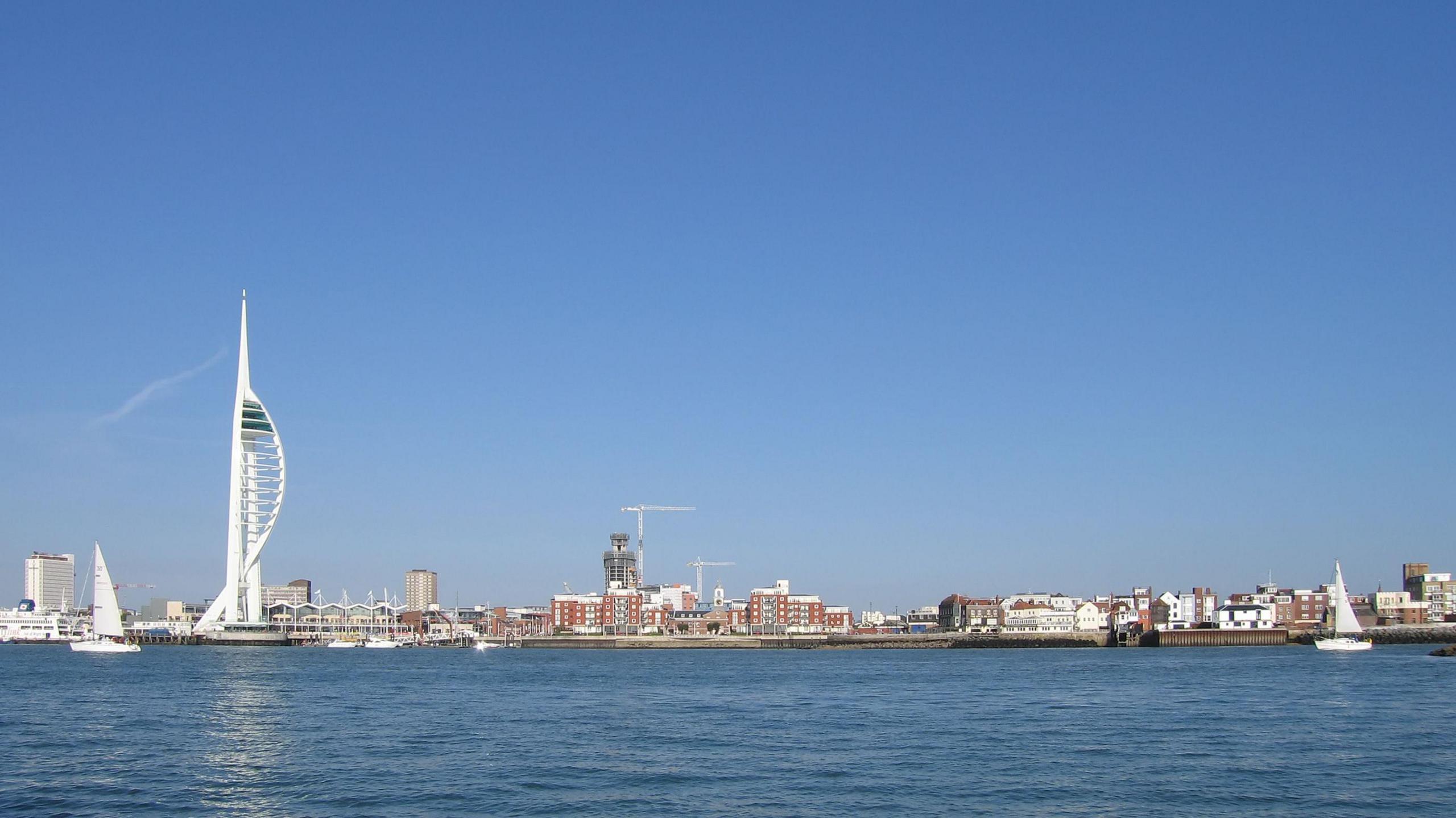Ships to plug in at port to beat pollution

- Published
Work to enable cross-Channel ferries and cruise ships to plug into electricity from ashore is beginning this week at one of the UK's busiest ports.
From next spring up to three ships at a time will be able to turn off their engines when in they are berthed in Portsmouth.
The aim is to reduce pollution and improve air quality across the city.
Cables are being laid beneath the port to connect ships of different sizes to the national grid.

Both Wightlink and Red Funnel have said they would like to use battery-powered ferries in the future
The port's biggest customer, Brittany Ferries, will soon bring two new hybrid-powered ferries to Portsmouth.
The first, St Malo, is already on its way from a shipyard in China. It will arrive later in November and start carrying passengers and freight next February.
The ferries will be able to run on batteries alone, with zero emissions, as they manoeuvre through Portsmouth harbour, only firing up fossil fuel engines in the Solent.
The project, called Sea Change, is being funded with £19.8m from the Department for Transport and £4.6m from Portsmouth City Council, which owns the port.
The port aims to be carbon neutral by 2030. It claims the shoreside power will help avoid emissions of 20,000 tonnes of carbon dioxide a year.
Maritime Minister Mike Kane MP said: "Plug-in technology is key to reducing domestic shipping emissions, and I know that ports across the UK are already working on decarbonisation plans."

Ships will soon be able to turn off their engines when docked in Portsmouth
Nearby Southampton can plug in one cruise ship at a time to shore power. Though on busy weekends it sees five or six cruises ships a day.
But ferries connecting the Isle of Wight with Portsmouth, Southampton and Lymington are unable to do so, because there is insufficient power supply to their terminals.
Both Wightlink and Red Funnel have said they would like to order battery-powered ferries to replace their existing ships, using technology already in use countries such as Norway.
But they cannot invest in the cleaner power until a reliable supply of electricity can be guaranteed.
Get in touch
Do you have a story BBC Hampshire & Isle of Wight should cover?
You can follow BBC Hampshire & Isle of Wight on Facebook, external, X (Twitter), external, or Instagram, external.